As larger retail groups prepare reports for the Energy Savings Opportunity Scheme (ESOS), whereby large UK businesses collate energy audits for the Environment Agency, to meet the end of year deadline (December 31 2022), the Department for Business, Energy and Industrial Strategy (BEIS) is currently considering responses to its consultation to widen its ESOS criteria.
Proposals include a net zero element whereby businesses would evidence measures taken to reduce carbon footprint rather than simply reporting energy usage. Medium-sized businesses could also be compelled to meet ESOS requirements whereas currently participation is restricted to businesses employing more than 250 people or with an annual turnover of more than £44 million.
All AM100 dealer groups have turnovers way in excess of this figure. Meanwhile, the Department for Environment, Food and Rural Affairs (Defra), has outlined its environmental targets for the next 25 years. With 18% of the UK’s carbon emissions from businesses and a legal requirement to reach net zero by 2050 under the Climate Change Act , the pressure is on to clean up and reduce costs.
But the pursuit of net zero in the automotive sector is also driven by manufacturers as energy specialists Journey Energy Solutions’ chief executive Darren Riva says: “There is pressure on supply chains to become net zero or at least show a reduction in carbon. I’m sure the brands will be putting on the pressure.”
Sustainability specialist Lee Fraine, who heads up engineering services at property and planning consultancy Rapleys, warned that while brands are pursuing a clean agenda both in vehicle production and wider operations, a balance needs to be struck between savings and capital investment. RSM UK head of motor retail Alison Ashley also highlighted the corporate identity standards trend which has seen a move away from aesthetics to meeting environmental objectives.
While OEMs deferred CI spend requirements during the COVID lockdowns, she warns: “In a market where a bricks and mortar retail model is constantly challenged, it is critical that any spend futureproofs the attractiveness of those dealerships as a route to consumers and alignment to Government policies.”
Retail groups themselves have their own carbon reduction targets to meet, but soaring energy costs have moved energy efficiency up the agenda. Riva says: “Events in recent months and the hike in the energy prices has really focused everyone’s minds so we are seeing a lot more engagement than we were six months ago.” Energy was previously a relatively small percentage of a dealer’s op-ex, but increased energy prices mean it now represents a much higher proportion. Consequently, Riva’s consultancy is now talking to three-or-four times more dealer groups looking at energy saving measures in the past six months.
The more straightforward wins for dealers are considerations such as:
- Ensuring LED lighting is utilised throughout the building.
- Rechannelling energy waste to power other requirements such as heating.
- Placing solar panels or even a small wind turbine on the roof to generate on-site supply, especially as photovoltaic (PV) panels are now more efficient and the return on investment (ROI) is much quicker
- Installing battery storage to store energy for when it’s needed.
- Replacing aged air compressors in the workshop, especially if combined with technologies that can recover wastage and redeploy heat to meet the likes of hot water requirements for the workshop or even the whole dealership.
Fraine says: “It can almost take up as much energy usage just to produce compressed air as the majority of the lighting in the building. Compressed air takes about 20% of the operational energy of the property which is quite staggering as it’s something you don’t see. It’s often overlooked.”
The savings can be significant, according to Riva: addressing lighting can result in savings of 50%-60%; solar (photovoltaic) PV ROI can be as little as six-to-seven years (based on current prices); battery storage is site-specific, but updating air compressors can result in 40%-50% savings.
He says: “We spread the cost over the useful life of the assets or over a period so, actually, all of our projects are cash-positive from day one given energy savings and maintenance savings are greater than the payments.” Dealers also need to understand their future requirements for EV charging as it could require upgrading grid capacity or even installing an additional sub-station.
However, as dealers face a tough marketplace over the coming months, Fraine questions how many of the energy-efficient measures with a high capital investment will be implemented in current dealership builds or as part of dealer refurbishments. Groups striving to reach net zero may also have energy saving ambitions constrained as budgets reflect tighter market conditions. Fraine says: “We are at a very strange tipping point where it is a balance between energy efficiency driving to carbon neutral and the capital cost.” Those groups with the capital to invest to produce some of their electricity on-site will be able to reduce their dependency on the grid and energy costs.
Similarly, Fraine highlighted the polar objectives of global brands pursuing a green agenda compared with the cost of cleaner technologies which can be out of reach of most people. There are also wider considerations for the sustainability of the dealership as brands and online retailers change the way cars are marketed. Fraine points to showroom size which has reduced by around 25% in the past 10 years in some networks, as well as the emergence of new retail concepts.
Now, though, could be the right time to invest in new, less energy-intensive technologies to take advantage of tax relief. RSM UK national head of capital allowances Peter Graham says: “Enhanced capital allowances for environmentally beneficial plant and machinery were withdrawn by Government from April 1, 2020. This was a strange move by Government, given the ever-growing green agenda. There is currently a much better relief for qualifying capital expenditure in the form of an uncapped super-deduction, which delivers 130% tax relief on qualifying capital expenditure.
“There is a cliff edge though in that the super-deduction stops on March 31, 2023. The key, therefore, for dealerships looking to maximise their tax relief on capital expenditure is to incur it before that date.”

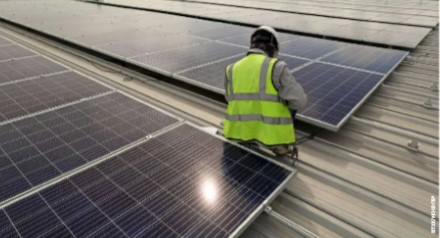
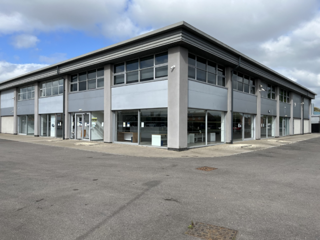
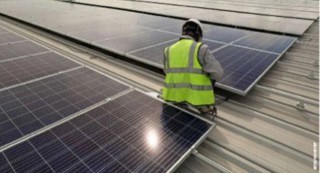
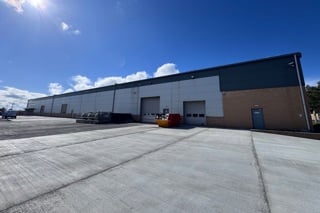
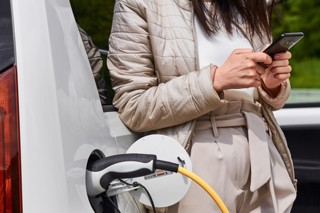













Login to comment
Comments
No comments have been made yet.